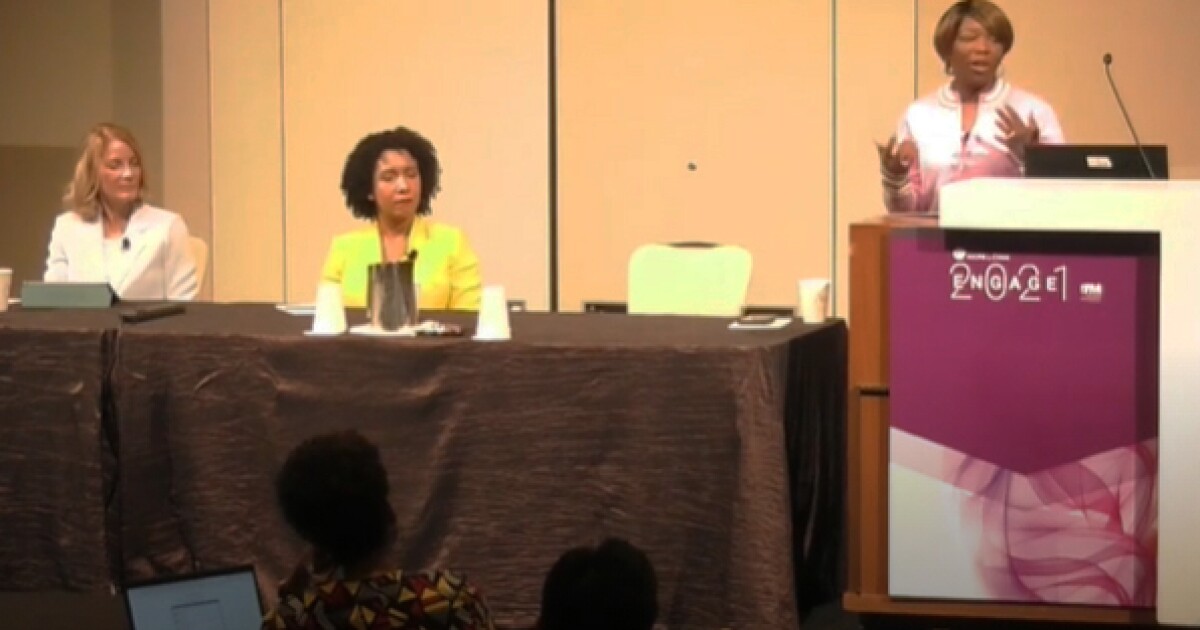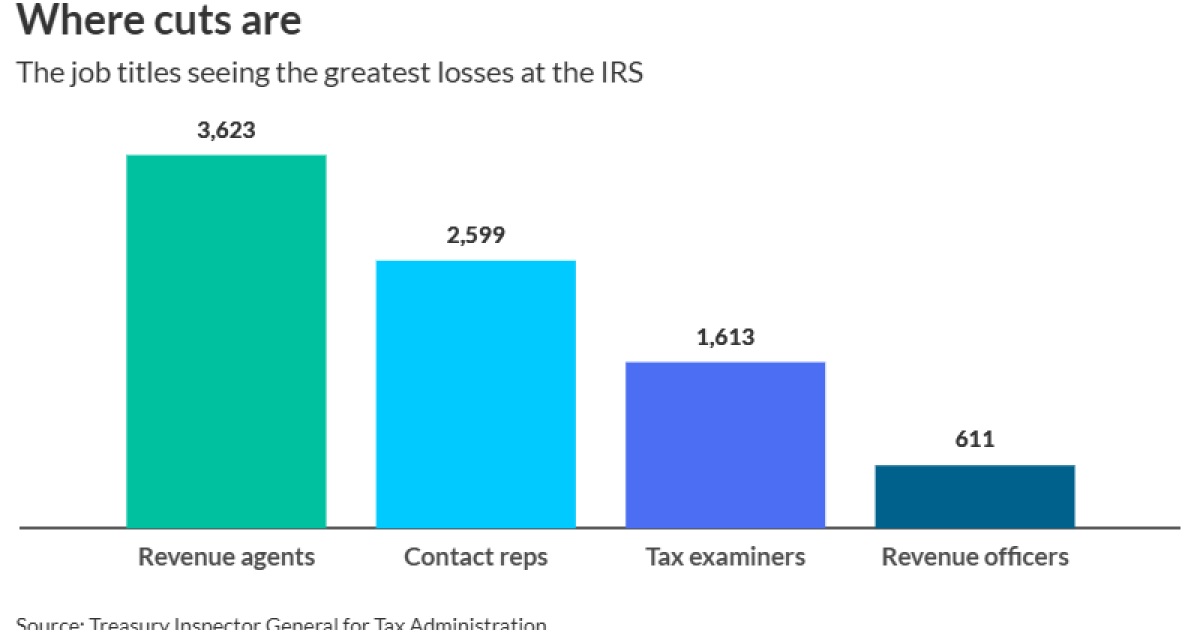In honor of Women’s History Month, I’ve taken time to reflect on my journey as a leader in the financial technology sector. Earlier in my career, I encountered the challenges that many women in our industry face, from biased hiring practices to persistent pay gaps. Advancing in accounting and finance often feels like walking a tightrope, demanding resilience, determination and a constant push for equity at every step.
At the same time, I’ve seen how much value women bring to our industry’s leadership spaces. Our differing perspectives and skills facilitate growth, improve company culture and foster the next generation of leaders.
Thankfully, with help from their own modern organizations, women have made tremendous progress in our field, but there’s still work to be done.
Women face challenges in advancing their careers
While workplace equality has come a long way, some women in accounting and finance still encounter barriers to advancement in companies that have yet to evolve. Fortunately, I’m proud to work for a forward-thinking financial technology company that actively fosters growth and advancement opportunities for women.
Perceptions and structural challenges can discourage many from long-term careers, contributing to their underrepresentation in leadership. By tackling these issues and reshaping the narrative, we can create more opportunities for women to thrive.
Stigma around the industry
Accounting and finance may not be the most “glamorous” of industries. Many young professionals overlook these fields, assuming they lack excitement or the potential for meaningful career growth.
My own career proves this isn’t true. Finance is a dynamic field with many opportunities for growth, networking and even travel. By connecting with young people and highlighting the most rewarding aspects of our field, we can inspire the next generation of accounting and finance professionals.
Barriers to leadership
In outdated organizations, women can encounter challenges that make it difficult to advance beyond entry- or mid-level positions. These barriers range from unconscious bias and lack of mentorship to structural hurdles that limit access to high-profile projects and leadership tracks. While many organizations have made strides in diversity and inclusion efforts, true progress requires more than just hiring initiatives — it demands a fundamental shift in how career development is structured.
One key solution may lie in rethinking internal career development programs. Without clear pathways for advancement, many talented women find themselves stagnating in roles that don’t fully utilize their skills or position them for leadership opportunities. Addressing this issue means implementing mentorship programs, leadership training and sponsorship opportunities that actively support women’s career progression.
Workplace biases and additional expectations
While great progress has been made, bias toward women in the financial and accounting industries still lingers within antiquated companies. Men who hold these views aren’t as outspoken about them as they may have been in the past. But the perspective often seeps into the expectations others have of women — even in leadership settings.
For example, women are often recognized for their natural ability to nurture and support those around them, which can be a valuable strength. However, this perception can sometimes lead to women being steered toward roles that may not fully align with their career goals — such as managing employees, onboarding new hires or organizing company events. Even seemingly small assumptions, like being assigned as the note taker due to “better handwriting,” can reinforce patterns that unintentionally limit access to higher-level opportunities.
The power of female mentorship in finance and accounting
Building a successful, high-level career as a woman in finance and accounting is absolutely possible. The challenge is that many of us start out without a clear roadmap for advancement. That’s why I’m a strong advocate for mentorship — having guidance and support early on can make all the difference in navigating the path to leadership.
When I started in our industry, a female leader took me under her wing. She taught me how to be an effective manager, how to act in a boardroom, and how to deal with people and challenges in different settings. But most importantly, she showed me how to infiltrate leadership spaces. This has had a profound impact on my career as an African-American woman in a primarily white, male-dominant industry.
That’s why I make it a priority to pay forward the guidance and support my own mentor once gave me. I believe in sharing knowledge freely, which is why I’m mentoring four rising women leaders, helping them build confidence, develop their skills and navigate workplaces that are still largely male-dominated.
Mentorship isn’t just about individual growth; it’s about ensuring each new generation of women in finance starts from a stronger position than the last. By passing down insights, strategies and hard-earned lessons, we create a ripple effect that accelerates progress. And that, more than anything, will help us close the leadership gap and advance at the same pace as our male counterparts.
Attracting the next generation of female leaders
Mentorship is a powerful tool for helping women advance once they’ve entered the finance industry. But the bigger challenge starts even earlier. Many ambitious young women don’t see finance as a career path worth pursuing. If we want to achieve true equality, we need to address this recruitment gap, making the industry more visible, accessible and appealing to the next generation of female leaders.
Engage young women early
First, we need to be more proactive in reaching young women at the start of their career journey. That means increasing our presence at local colleges, cultural fairs, conferences and professional events.
Finance is an incredibly rewarding career, but young women need to see that for themselves and have clear entry points to explore their potential. Internships, mentorship programs and even simple coffee meetings can make a huge difference in helping them take that first step. Think of it as building a bridge — one that connects ambitious young women to the opportunities our industry has to offer.
Creating an inclusive hiring process
Getting young women interested in finance is a great place to start. But we also need to ensure they’re being hired. A more inclusive hiring process is key to making that happen — one that minimizes the influence of unconscious bias and focuses purely on talent and potential.
One effective approach is blind hiring, where companies assess resumes and written responses without knowing a candidate’s gender. This levels the playing field, ensuring the most qualified person gets the job based on merit rather than outdated perceptions of who “fits the part.” By adopting practices like this, we can build a more diverse, equitable finance industry that welcomes and elevates women from the start.
Building workplaces that retain women
We should also seek to build workplaces that retain a higher percentage of their female employees. That starts with paying women an equal wage. But it also means embracing work-life balance and flexibility.
Flexibility in the workplace isn’t just a perk — it’s a necessity for retaining top female talent. Companies that offer hybrid or remote work options, flexible scheduling and generous parental leave policies create environments where women don’t have to choose between career advancement and personal commitments. When organizations recognize that productivity isn’t defined by rigid office hours, they open the door for more women to thrive in finance without sacrificing other aspects of their lives.
Internal career development programs
Finally, we should create more sophisticated career development programs. These help women progress in their careers by showing them exactly what they need to do to rise into leadership. They help with retention and advancement — two key steps toward equality in the financial industry.
A well-designed career development program does more than offer occasional workshops or mentorship opportunities. It provides a structured framework for growth, outlining the skills, experiences and milestones necessary for women to progress into leadership roles. These programs should include:
● Transparent promotion criteria – Clearly defining what it takes to move up in an organization helps eliminate ambiguity and bias, ensuring women have the same opportunities for advancement as their male colleagues.
● Mentorship and sponsorship – While mentorship provides guidance, sponsorship connects women with influential advocates who can actively support their career growth, recommend them for leadership roles and open doors to high-profile projects.
● Leadership training and skill-building – Equipping women with executive-level skills, such as negotiation, strategic decision-making and financial forecasting, prepares them for leadership positions and strengthens their confidence in pursuing them.
● Stretch assignments and high-visibility projects – Women should be given opportunities to take on challenging assignments that demonstrate their capabilities and position them for promotion. Too often, they are siloed into support roles rather than being encouraged to lead critical initiatives.
● Work-life integration support – Career growth shouldn’t come at the cost of personal wellbeing. Programs that include flexible leadership tracks, remote work options and family-friendly policies ensure women can advance without sacrificing work-life balance.
The path forward
I’m fortunate to have found my path in the industry, gaining momentum in leadership and ultimately securing a role at Yooz, a leading-edge AP automation provider. However, the industry as a whole has room to grow in recruiting, supporting and advancing women in finance. This requires developing concrete strategies to identify and uplift talented women, including:
- Engaging young women early in their careers
- Promoting woman-to-woman mentorship relationships;
- Removing bias from our hiring processes; and
- Creating more concrete career development programs.
The future for women in finance is full of potential, but there’s still work to be done. Progress won’t happen on its own — it requires collective effort, commitment and a shared vision to create real change.


 Economics1 week ago
Economics1 week ago
 Accounting1 week ago
Accounting1 week ago
 Blog Post4 days ago
Blog Post4 days ago
 Economics1 week ago
Economics1 week ago
 Personal Finance1 week ago
Personal Finance1 week ago
 Economics6 days ago
Economics6 days ago
 Personal Finance1 week ago
Personal Finance1 week ago
 Finance1 week ago
Finance1 week ago











